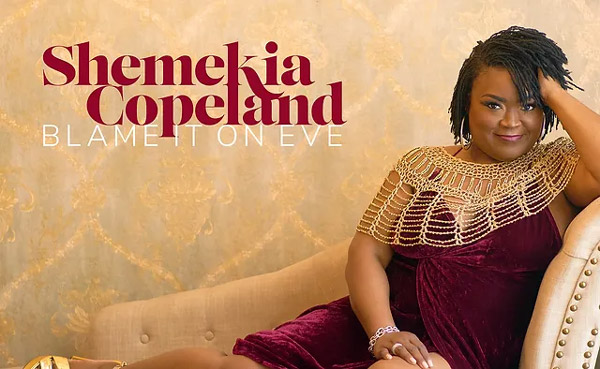Bilal
Thursday, February 27, 2025 @ 7:30pm

Mayo Performing Arts Center (MPAC)
100 South Street, Morristown, NJ 07960

Bilal Sayeed Oliver is a truly independent artist. A singer, songwriter, and producer who has always been ahead of his time – blending jazz, afro-futurism, classic soul, alternative r&b, rock, and even classical in his vocals and music. He’s known for his wide vocal range, work across multiple genres, and magnetic live performances. Philip Bailey said Bilal is the rare singer who uses his voice like an instrument.
Interscope Records signed Bilal to a major label recording deal fresh out of college, after studying jazz composition and opera at The New School in NYC. His debut album, “First Born Second,” showcased a range from the emotionally charged fan-favorite, “Soul Sista,” which peaked at No. 18 on the Top R&B/Hip-Hop Songs charts, to the political viewpoints of “Fast Lane” and “Second Child”.
Bilal quickly developed a sizable following at his live shows which were known for being emotional and elecrifying. He received great acclaim from his peers, who noted his range and ability to sing in a freeform style and his classically trained falsetto. The soulful feel of the album caused Bilal to be labeled as “neo-soul,” but throughout his career his expansion in music and pushing of boundaries has proved his point that he is much more than that.
Playing jazz venues and recording more progressive soul music in the following years, Bilal has commercially released four albums to critical success. His unreleased but widely leaked second album “Love for Sale” found wide acclaim among critics and listeners. It features collabs with Dr. Dre and J Dilla and was built around Bilal’s own musicianship, included live instrumentation and had a vibe completely new and different from its predecessor. Interscope shelved the album indefinitely. It still received over half a million downloads and Bilal began touring even though there was no proper release of the album.
As a member of the Soulquarians, an experimental collective that was active from the late 1990s to early 2000s, Bilal has been culturally and musicially influencial on a whole new generation of musicians and producers. His extensive list of collaborations includes Kendrick Lamar, Common, Erykah Badu, Jay-Z, Beyoncé, Guru, Kimbra, J Dilla, Robert Glasper, and The Roots.
“Airtight’s Revenge,” his experimental 2011 album, blends jazz, hip-hop, electronic, rock, soul, and blues into one raw, genuine collection of music. The album’s single, “Little One”, earned Bilal a 2011 Grammy Award nomination in the category of Best Urban/Alternative Performance. That year, he was also on the Roots’ Grammy-nominated album Undun (2011) and the Robert Glasper Experiment’s Grammy-winning Black Radio (2012).
With the release of his next album, “A Love Surreal,” Bilal immediately achieved commercial success, debuting at No. 1 on iTunes’ R&B Chart. On Billboard, the album debuted at No. 17 on the Independent Albums Chart, No. 19 on the R&B Albums Chart, and No. 103 on the Billboard 200. The album received shining reviews, including an 8/10 from SPIN magazine,4.5/5 stars from Allmusic, and 4/4 stars from USA Today.
In an essay on the Soulquarians, Michael A. Gonzales traces the collective’s impact to Bilal’s contemporary contributions: “Listening to Kendrick Lamar’s newest album “To Pimp a Butterfly”, “Bilal has transformed himself for the post-Soulquarian generation that includes Robert Glasper, Esperanza Spalding and now Kendrick.”
In August 2020, during the COVID-19 lockdown, Bilal wrote and recorded his first EP, Voyage-19, over the course of three days and in collaboration with various musicians in remote experimental sessions, which were streamed live on YouTube. The resulting three-track EP was released digitally the following month, with revenues of its sale and accompanying donations given to the participating artists, many of whom had been struggling financially due to the pandemic.
He is working on new music and currently splits his time between the US and Morocco, where he paints and writes music.
For information on how your event can be listed, click here
Advertise with New Jersey Stage for $50-$100 per month,
click here for info
FEATURED EVENTS

An Evening With Cher: The Memoir
Friday, November 22, 2024 @ 7:00pm
Bergen Performing Arts Center (bergenPAC)
30 North Van Brunt Street, Englewood, NJ 07631
category: music
View event page for full information

Lucinda Williams and her band
Friday, November 22, 2024 @ 7:30pm
McCarter Theatre Center (Matthews Theatre)
91 University Place, Princeton, NJ 08540
category: music
View event page for full information

Shemekia Copeland
Friday, November 22, 2024 @ 7:30pm
Lizzie Rose Music Room
217 E. Main Street, Tuckerton, NJ 08087
category: music
View event page for full information







